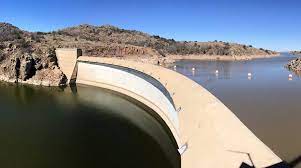
The Oklahoma Water Resources Board plans another round of meetings this year as it works on the Oklahoma Comprehensive Water Plan.
Owen Mills, Director of Water Planning for the Board recently reported on the December 2023 second in a series of statewide meetings held to develop the plan. Meetings engaged local officials, water utility suppliers, regulated industry, commercial agricultural producers and economic development groups. They discussed local water challenges, opportunities and identified ways the OCWP can support local water planning and management.
During the first round of regional meetings, three categories emerged to frame the breakout groups for this second round. While the conversations and suggestions varied across the regions, the summary below captures some takeaways and discussion where we found general agreement.
Permitting / Regulations / Policy – Many participants expressed support for increasing timely enforcement of existing rules and use limits. Ideas for achieving this included establishing regional OWRB offices or representatives, local management authorities, or modifying enforcement rules.
Nearly all participants expressed views that some form of local control or management of water resources would be beneficial, although there was no consensus on what the management structures should be implemented or what kinds of authorities, if any, should be established.
Infrastructure Improvements and Funding / Financing – It was uniformly agreed in the groups that clean safe abundant water is a public health issue; and that the daunting challenges of aging infrastructure and treating drinking water for new complex constituents, especially in small communities are often not met through current funding and assistance programs. There was broad support in the groups for some level of state match (cost-share) to address at least the most dire needs, in order to ensure public safety and public health. Most agreed that such cost-share should come with certain requirements that ensured recipients improved their long-term planning, improved their business management practices and operations.
With those requirements, discussions usually segued into funding for and development of a more robust education program on effective utility management and board training, expanded planning and technical assistance programs, and provide substantial and ongoing state funding for water and wastewater activities. Most agreed that these could be accomplished within existing program authorities if these programs were provided ongoing additional funding and/or staff.
Collaboration and Partnership – Many participants expressed support for developing regional water plans, and support for the role coordination can play to leverage and improve individual plans within a region. Participants noted that regional water plans can be useful tools in identifying local capital project needs for water supply, and that the state could help incentivize such regional planning through existing financial programs by giving preference to or even cost-share to those projects that are participants of a larger regional water plan.
Group members identified several best management practices (BMPs) and mechanisms through which the state can encourage or incentivize voluntary BMPs. Examples include providing training and / or technical assistance for utilities to implement effective utility management and sustainable utilities practices (e.g. appropriate rate structures, regular rate increases, long-term planning, etc.).



